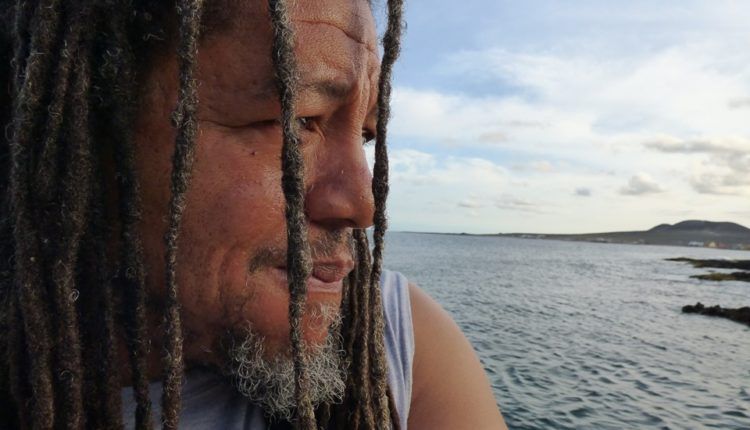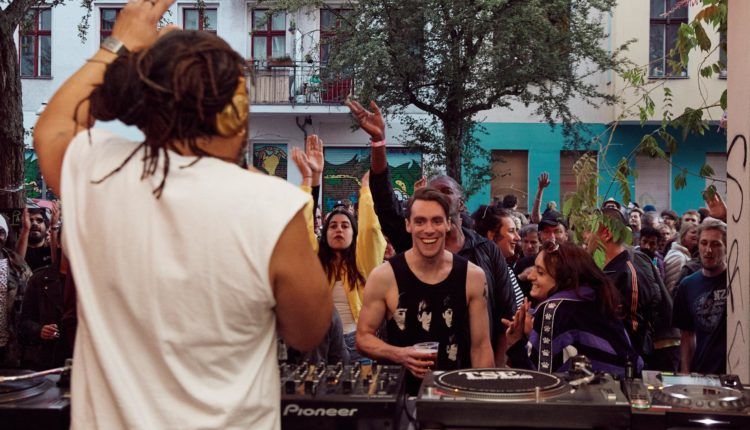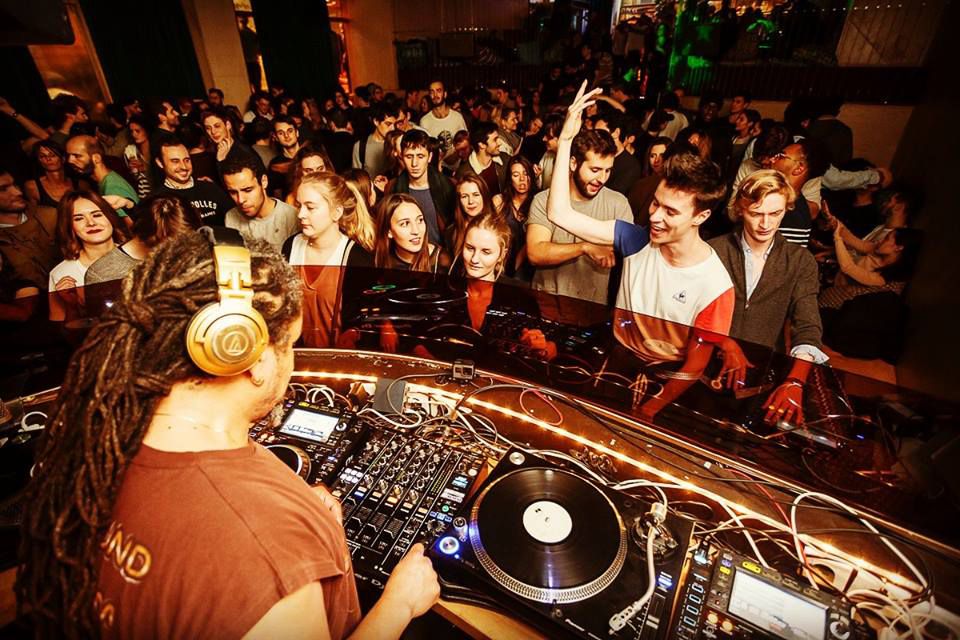News
In The Mind Of A DJ: Jus-Ed Interview
A prolific producer and multi-faceted DJ, Jus-Ed’s career spans over 40 years. Founder of respected label Underground Quality, Jus-Ed’s approach to music is authentic, dedicated, and serious. He holds residencies at Tresor (Berlin) and Djoon (Paris). In today’s interview, Jus-Ed explains his commitment to DJing, what he thinks it takes to become a good DJ, and shares his passion for music overall.

Can you tell us about your debut as a DJ?
I was 10 years old when I started to play records. I listened to music and I’ve seen music change over 50 years. I have a lot of music history from the late 50’s music doo-wop music to Korean K-Pop.
My first professional DJ gig was in 1981 at El Paso in Texas. It was my first marriage. Then I was forced into retirement in 1985 since I used alcohol and drugs too much. I later understood that drugs were a struggle for me – until the late 90s when I finally gave up and entered AA.
In 1996, I could finally go back to clubs sober while solid on my feet. I could enjoy clubs again as long as I had a purpose to be there. Later, in 2000, my DJ name was established with my partner from Underground Quality who said: “You need a DJ name.” I said, “Ed.”
He said “DJ ED” isn’t good.” And I responded, “Just Ed”. Without the T [it became] “Jus-Ed”.
What advice do you have for aspiring DJs?
I would advise young DJs to never give up their day job. Today, I own my own label, Underground Quality, I work with no agency, I pay for my record pressings with my rent money. This is real life artist’s shit, ya know. You gotta be passionate about what you do and you have to be committed.
I’m also a father, therefore I don’t have 100% time to do music. Plus, I had hip surgery and I’m still recovering. After 15 years of pain, I can now move again. I work for myself and I didn’t have the time to lay back for a long recovery. You also need good health insurance. I would also say that you shouldn’t live your life 100% music. It’s not healthy. However, music is still my passion.
What have you learned from founding Underground Quality?
The concept of UQ has always been to push the DJ first. Out of all artists, they are all exceptionally good DJs. The next thing was to incorporate a family bond, instead of working on a label that sucks you dry. It was a platform to introduce this genre of music, a collective of artists and music that is not mainstream in the underground world.
All personal success of all the individual artists is due to their personal talents and efforts. UQ gave them a starting point. It was what really connected all of us: to give an honest opportunity to expose them to the UQ audience. What success the artists have today is due to their drive and personal energy. Success, by simple definition, is finishing what you start. Success by simple definition is finishing what you start.
What did you learn as a label owner?
For Underground Quality, my position is the owner and I decide what will be included in the catalog. My dream was to create a catalog of many different genres of music but [it] has to be underground quality music. You never see UQ release a commercial record, ever. It’s against the mission statement.
As a result of that, I have a huge catalog that’s timeless and extremely valuable; I don’t know how much it is worth today. UQ is a very sought-after label. I’ve seen a lot of labels have modeled themselves the way UQ has worked. It has also inspired many independent artists to create their own labels.
As a label owner, I have also learned over the years that you should have an agreement and it has to be in writing. Today, many artists don’t care about an agreement. They just want to release their music. They should not be afraid to ask for this since it helps keep the deal clear. As time goes by people forget. People change. Life presents uncontrollable events. Without some type of agreement in writing disappointment is inevitable.
I have also been disappointed many times because I had some artists who decided to go in a different direction because a bigger label contacted them. They did the deal and later told me, “It’s like you say you are getting married, and later your partner doesn’t show up to the altar.” Gutted!
What changes have happened to your DJ career?
Five years ago, I decided that I was going to stop and take a break from pushing new artists with UQ and start pushing Jus-Ed. With 14 years of doing [working mostly on the label], my profile as a DJ failed and people knew the artists and UQ, but not Jus-Ed. The last five years, my profile has become more successful.
What did you do to raise your profile as a DJ?
I stopped working as an artist and I did more releases just as Jus-Ed, then making interviews and playing at festivals. Now I’m building the underground road through South America. For the last 3 years, I have been working on that. I have a new release coming soon, which is about Colombia and Chili.
To raise your profile, you need consistent releases and having really good gigs. I don’t mean high-attendance gigs or high-paying gigs. I mean gigs that when you finish, they want to know your name, where you’re from and how can they get more! People who love the music and how you delivered it will talk about you and follow you on the internet. This is the only way to build a real audience that will follow and support your music.
As for social media, a presence is very important. But I believe numbers should be real. In my case, I never purchased likes or followers. I need to establish and earn an organic following, after this is how I make my living.

How do you find gigs like that, and how can you be sure you will succeed at these gigs?
At first I started working with agencies. People come to me and wrote to me directly for bookings. I would refer them to the agent. I have been an artist on good agencies such as Paramount, Canopy in New York and later Magnet. These are well-known agencies but for some reason, 80% of bookings would contact me first, still. Since I am a father and husband there are responsibilities that override a booking. So I decided that it would be best for my needs and life responsibilities to do my own bookings.
A lot of gigs that I play now may not always be high fee, but they are completely satisfying as far as my artistry is concerned. I am grateful. Your question of how can I be sure to succeed at my gig is simple… I know I am not the best DJ in the world but I Am Better Than You! I always succeed at DJing because this is what I do. Whether the party is packed or not — which is the promoter’s job. I do help promote and I’m excited if I’m going to different cities or countries, especially for the first time because I love to travel.
My job is to rock the party.
How do you prefer to perform as a DJ?
I go back and forth; I have a lot of productions that are not on vinyl and then I have a lot of music that is just digital. I have to be able to play both [formats] of music: it gives me the opportunity to play an eclectic set.
I can do editing and quick loops but I don’t use pioneer Recordbox for example. I don’t use presets; I do my edits live and on the fly. I am lazy, I don’t like technology but I have to adapt if I’m going to survive. Recordbox is very nice and makes it easy for a person to sound like a great DJ but there’s no work, there’s no physical work involved. If you want to do a loop with vinyl, you need skill and you need practice.
Many DJs I spoke with who started to play on CDJ first have a hard time mixing vinyl records: I was shocked about that. I am grateful I have learned on analog equipment. If you wanted an echo on records, you had to play at the same speed then you pull it back half a beat and then you get the echo. If you have it playing at the same time, you can do this effect called flanging. All of these effects that we’ve done manually you can now push a button on the mixer.
Technology […] makes it easier for me because I don’t have to work so hard, but I know how to do it manually. The new generation doesn’t even know where this comes from, “When the button fails, the effect fails, how do you do it?” I hear sometimes.
I still take my vinyls, and I do live edits and the young aspiring DJs wonder how I’ve done it. I’m passing the true quality of what it takes to be a DJ to have these technical skills and show other DJs how it is done. It’s rewarding.
Can you tell us about a time you taught someone else how to DJ?
The first time that I was aware of was at the House & Home, an underground place in New York. It was the loft of a guy who was doing parties there. I was looking at three young guys; they were just hanging on the DJ booth staring at me.
I said, “Are you guys okay?” They answered, “We are learning to play with Serato. We never saw a DJ playing vinyls like this. We’d love to watch you.” It was my first time I realized I was a teacher in this position. I don’t think I’m a professor, Yet I’m a person who has 47 years of playing records from all music genres.
How do you define the art of DJing?
DJing is about timing. Not the mix timing: it’s how to present the next songs or tracks. It is how you have practiced at home and listen and watched other DJs play, how you have educated yourself about the musical make up: cords, vocals, drum patterns, the sound quality of the track or song.
At parties, I see a lot of people who don’t pay attention to the music. When I show up at parties, the people are sometimes not clear why they are there. They don’t have any clue about the music. These people may feel like, “When I go to a party, I just want to forget about my troubles, I want to feel emotions or I want to let go of these emotions.” It’s about learning how to read the floor not minds… I always ask myself, “How can I capture these people’s attention and give them the good free energy and love I have for this music?” Back home we call it conjuring the spirits so people can get lifted.
This is the only thing I can do with music.
Some people meditate, some people dance, some people go to the gym. This is also what the night is for: to escape and become whole again. My job is to capture and then coordinate a spiritual environment that helps people escape. But sometimes it can be disturbing for people who are not familiar with the music. I need to make sure I don’t make them run away. I make sure that people stay. They don’t have to dance for me. They just have to stay. My job as a DJ is to retain the people who came to the party. If I lose the people early in the night, the bar doesn’t sell enough liquor and the club will not be happy. This could mean no call back for me. There is much more to being a Disk Jockey, but I’ll leave it here for now.
Can you name your favorite tracks right now?
hahaha (laugh). I don’t know. I can look in my records bag:
- Son of Sound: Manhattan Project / UQ-069 Grand Combo Ep
- Jus-Ed: Your On My Side
- UQ-069 Grand Combo Ep [embedded above]
- Blaze: Best of Blaze Rmx by Joey Negro
- KiNK: Chorus
- Morris / Audio Morris 58: the whole record.
- MOVE D: Acid / UQ-059 The Brothers Ep
Also Down by the Lake, I love the music they are putting
down right now.

